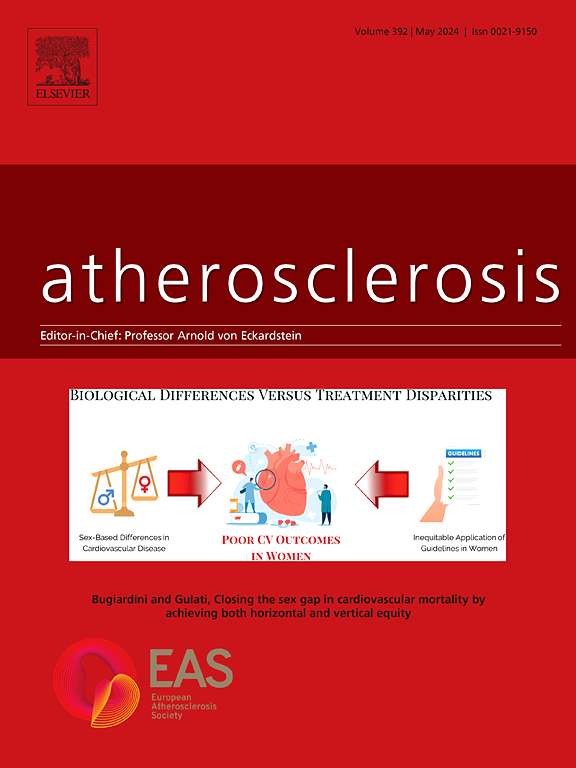Trimethylamine N-oxide aggravates human aortic valve interstitial cell inflammation by regulating the macrophages polarization through a N6-methyladenosine-mediated pathway
IF 4.9
2区 医学
Q1 CARDIAC & CARDIOVASCULAR SYSTEMS
引用次数: 0
Abstract
Background
Trimethylamine N-oxide (TMAO) is a gut microbial metabolite that promotes calcified aortic valve disease (CAVD), but the underlying mechanism remains obscure. Herein, we aim to test the hypothesis that TMAO regulated the inflammatory process in aortic valves via N6-methyladenosine (m6A) RNA methylation-mediated macrophage polarization.
Methods
In vitro, we stimulated macrophages (Phorbol-12-Myristate-13-Acetate-induced THP-1) with TMAO and assessed the expression of methyltransferase-like 3 (Mettl3), IL-1 receptor associated kinase M (IRAK-M) and polarization markers. The interaction between YTH domain family protein 2 (YTHDF2) and IRAK-M mRNA was explored by RNA-IP and RNA decay assay. Functionally, the effects of macrophages on human aortic valve interstitial cells (AVICs) were measured via macrophage adhesion assay and co-culture system. In vivo, the influence of IRAK-M on CAVD development was verified using Irak-m−/− mice.
Result
Mettl3 was highly expressed while IRAK-M was decreased in human calcified aortic valves. In vitro, TMAO upregulated the expression of Mettl3, while the expression of IRAK-M, an important negative regulator of the NF-κB pathway, was remarkably decreased in macrophages. TMAO also induced classical macrophage activation (M1 polarization). Mechanistically, IRAK-M was identified as a target of Mettl3-mediated m6A modification, indicating the involvement of m6A methylation in the regulation of NF-κB activation. Moreover, RIP assay revealed the direct interaction between YTHDF2 and IRAK-M mRNA and this process was dependent on Mettl3. TMAO-treated macrophage conditioned medium induced inflammatory responses in human aortic valve interstitial cells (AVICs). In vivo experiments showed that the deletion of IRAK-M significantly accelerated the progression of aortic valve lesion in mice administrated with high-fat and choline diet (HFCD).
Conclusion
TMAO induces the expression of Mettl3 in macrophages. Mettl3 promotes M1 polarization of macrophages by inhibiting IRAK-M through a m6A/YTHDF2 pathway. TMAO-treated macrophages aggravate the inflammation of human AVICs.

求助全文
约1分钟内获得全文
求助全文
来源期刊

Atherosclerosis
医学-外周血管病
CiteScore
9.80
自引率
3.80%
发文量
1269
审稿时长
36 days
期刊介绍:
Atherosclerosis has an open access mirror journal Atherosclerosis: X, sharing the same aims and scope, editorial team, submission system and rigorous peer review.
Atherosclerosis brings together, from all sources, papers concerned with investigation on atherosclerosis, its risk factors and clinical manifestations. Atherosclerosis covers basic and translational, clinical and population research approaches to arterial and vascular biology and disease, as well as their risk factors including: disturbances of lipid and lipoprotein metabolism, diabetes and hypertension, thrombosis, and inflammation. The Editors are interested in original or review papers dealing with the pathogenesis, environmental, genetic and epigenetic basis, diagnosis or treatment of atherosclerosis and related diseases as well as their risk factors.
 求助内容:
求助内容: 应助结果提醒方式:
应助结果提醒方式:


